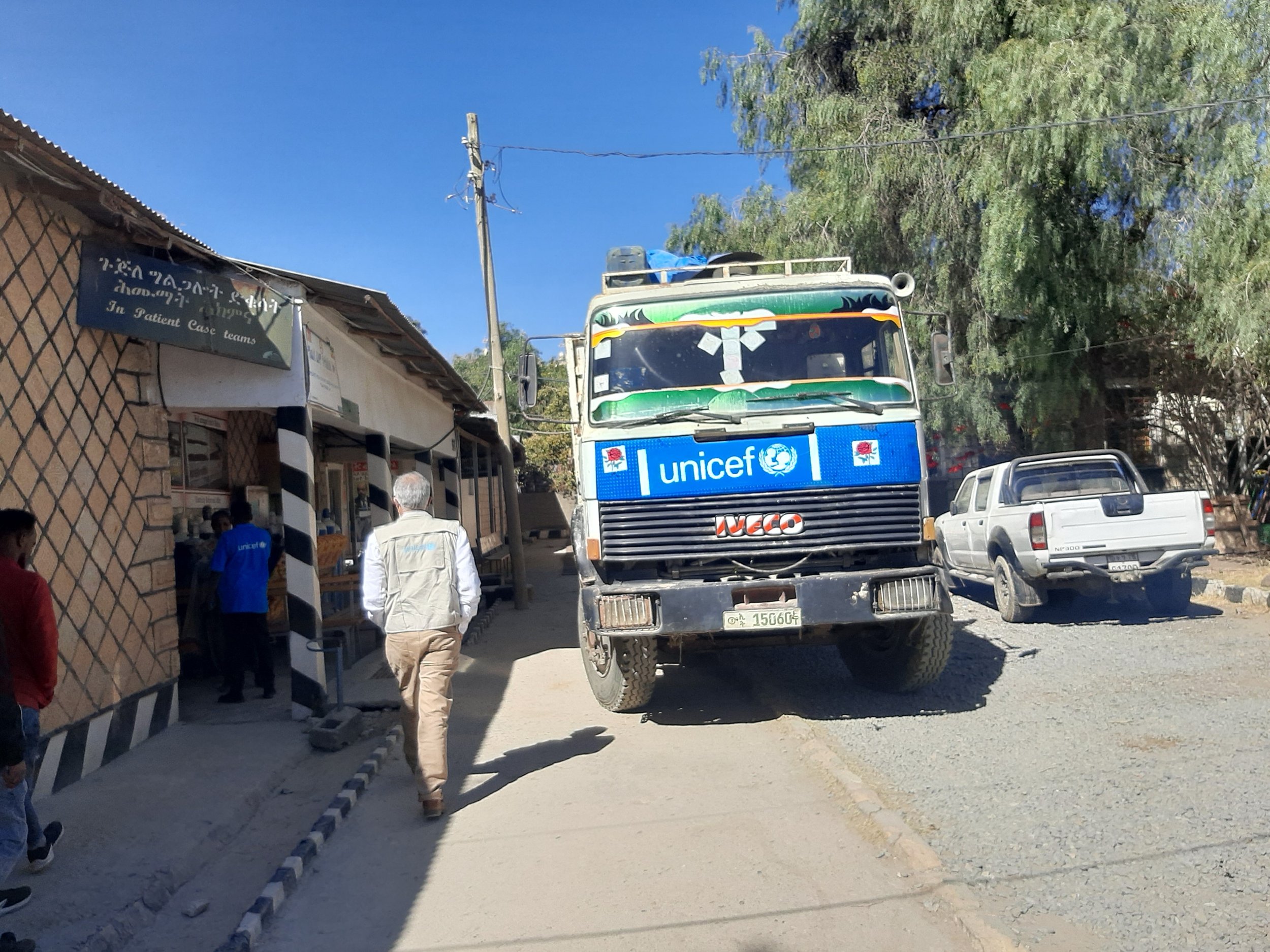Ethiopia Expels Senior U.N. Officials
UNICEF truck delivers aid to a hospital in Tigray. (Wikimedia Commons)
The Ethiopian government expelled seven senior United Nations humanitarian aid officials working in Tigray, a war-torn region in northern Ethiopia, on September 30. This expulsion of high-ranking UN officials is one of the largest in recent history, provoking strong opposition from the UN.
In a statement the Foreign Ministry released on September 30, the Ethiopian government accused the UN officials of “meddling in internal affairs” by spreading misinformation and supplying Tigrayan rebels with trucks and communication equipment. The government declared the seven officials persona non grata, giving them 72 hours to exit the country.
UN Secretary General António Guterres adamantly rejected these claims on October 1, demanding proof from Ethiopian Prime Minister Abiy Ahmed. Guterres responded, “The UN is delivering life-saving aid—including food, medicine, water, and sanitation supplies—to people in desperate need. I have full confidence in the UN staff who are in Ethiopia doing this work.”
The officials in question include the heads of the United Nations Children's Fund (UNICEF) and the United Nations Office for the Coordination of Humanitarian Affairs (OCHA). They have been working in Ethiopia as part of the UN’s efforts to combat the growing famine and humanitarian crisis in Tigray. Since November 2020, fighting between the Ethiopian government and the Tigray People's Liberation Front (TPLF), a local militia, has resulted in thousands of deaths and more than two million displaced people.
In response, the Ethiopian government cracked down on foreign aid efforts in June, imposing what the U.N. humanitarian aid chief, Martin Griffiths, described as a “de facto blockade” on food, fuel, and medicine. Since July 12, the number of trucks allowed into Tigray has only been enough to provide 10 percent of the aid necessary to prevent famine, according to UN officials. In addition to the conflict, Ethiopian soldiers have barred Tigrayans from cultivating their land. Consequently, the lack of seeds and oxen have left much of the Tigrayan farmland abandoned. Swarms of desert locusts, like those that devastated more than 350,000 hectares of Ethiopian farmland in 2020, reappeared in September and are now poised to exacerbate the situation. In a letter to the UN Security Council on October 1, Guterres claimed, “At least 400,000 people are living in famine-like conditions. Levels of reported child malnutrition are now at the same level as at the onset of the 2011 Somalia famine.”
The differing views among the members of the UN Security Council will likely continue to prevent any significant UN. response. China and Russia blocked a UN statement Ireland proposed to address the situation on October 1. Russia and China expressed their belief that the Tigray War is a strictly domestic matter. The United States, on the other hand, condemned the Ethiopian government’s actions. During a White House press briefing, Press Secretary Jen Psaki threatened that the United States “would not hesitate” to impose sanctions on Ethiopia.
These expulsions and the disagreement among member countries reflect the broader debate over the UN’s mandate to provide humanitarian aid versus its responsibility to respect national sovereignty. In a diplomatic note sent to the UN Mission to Ethiopia and Eritrea, the United Nations rejected the use of “persona non grata” to expel UN officials. UN deputy spokesman Farhan Haq stated that its use runs “contrary to obligations under the Charter of the United Nations and the privileges and immunities to be afforded to the United Nations and its officials.” He explained the UN’s policy on “persona non grata” as a designation only applied in disputes among states, adding, “We are not a state.”
Guterres stated on September 30 that the UN is “engaging with the Government of Ethiopia in the expectation that the concerned UN staff will be allowed to continue their important work.”

